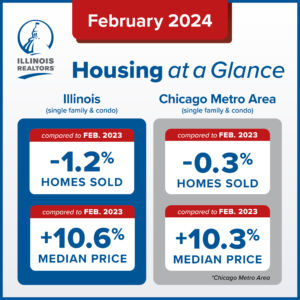A shopper walks into Best Buy to buy a GPS. He asks the Best Buy salesperson questions to determine which one would work best then pulls out his iPhone and uses an app to scan the bar code on the GPS. The app immediately sends the information to the Internet and within seconds the shopper finds the GPS for 10% less because there is no sales tax charged and shipping fees are waived. The shopper purchases the GPS over the Internet right in front of the salesman and walks out of the store.
Why would a REALTOR® care about the Best Buy scenario above? Most commercial real estate brokers understand that the retail space they want to lease is put at a competitive disadvantage with Internet retailers that do not have to collect a sales tax. In addition, many online retailers are waiving the shipping fees so now in the commercial real estate marketplace you are seeing a much bigger impact on the brick and mortar retailers. Residential real estate brokers are quickly learning how this unfair competition between retail real estate vs. Internet retailers impacts them in the following ways.
1. Property tax shift. When local brick and mortar retailers are unable to compete on a level playing field with Internet retailers the result is that brick and mortar retailers close their doors. Case and point is the Borders bookstores. A loss of tenants causes the assessed valuation of retail properties to go down. So the property tax that was once paid by main street stores that are closing due to the unfair Internet retailer competition get shifted on to the local homeowners to make up for the shrinking tax base. It should be noted that shopping centers collected $6.1 billion in state sales tax revenue during 2010, on top of generating other property and business taxes.
2. Jobs. Last year, retail real estate accounted for 497,970 jobs in Illinois which represents 8.9% of total Illinois employment. In addition, on average there are 111 jobs per shopping center in Illinois. These jobs are for people living in local communities compared to the fewer jobs of Internet retail companies that are far away.
3. Loss of tax revenue. Illinois is estimated to lose more than $1 billion in sales tax revenue and collectively states are expected to lose $23 billion in sales tax revenue in 2012. The reason is simple because online retailers posted record growth of 11% in the fourth quarter of 2010 and e-commerce has grown from almost 5% to more than 15% of retail sales during the last 10 years. With the age of computer software programs it is very simple to have Internet retailers collect the taxes that are due in the local communities where their customers live.
4. Quality of life. Brick and mortar retailers generate community spirit and support many local charities. For example how many Internet retailers provide space for the local cheerleading squad to hold a car wash? Or how many Internet retailers have a place for children in their community to meet Santa and give them their Christmas wish list?
5. Infrastructure Use. Brick and mortar retailers pay their fair share to the public good for infrastructure to run their businesses but Internet retailers pay nothing. For example, an Internet retailer does not pay for any tax that fixes the roads and bridges in a community that allows for their products to reach their customers who order online.
On April 7, the Illinois Association of REALTORS® (IAR) Board of Directors boldly stepped forward and unanimously voted to support the idea that sales tax should be collected from remote sellers. According to the National Association of REALTORS® and the International Council of Shopping Centers, IAR is one of the first state associations to recognize this disparity in taxation.
Please understand that no one is suggesting Internet retailers should go away. On the contrary Internet retailers provide a wonderful service and convenience for people to purchase the products they need online. Don’t stop Internet sales but rather make the playing field level so brick and mortar retail real estate can compete fairly.
How can anyone say it is fair for an Internet retailer to charge 7 to 10% less for the same product as a brick and mortar retail company? Note: In many cases the Internet retailer throws in free shipping? Clearly logic is on the side of fair competition and that is what real estate brokers understand.
As Americans, we thrive with competition and so do the brick and mortar retail real estate companies. You can argue when the Internet first started that these Internet retail companies needed to have this government tax subsidy to kick-start their industry. However, those days are over and it is vital that REALTORS® help to balance the scale for the brick and mortar retail real estate companies so our quality of life does not get eroded anymore than it has been by unfair competition.
REALTOR® Dan Wagner is Vice President of Government Relations for The Inland Real Estate Group with headquarters in Oak Brook, Illinois, and he serves on the Illinois Association of REALTORS® Commercial/Industrial/Investment Committee.




 Create professional development programs that help REALTORS® strengthen their businesses.
Create professional development programs that help REALTORS® strengthen their businesses.
 Protect private property rights and promote the value of REALTORS®.
Protect private property rights and promote the value of REALTORS®.
 Advance ethics enforcement programs that increase REALTOR® professionalism.
Advance ethics enforcement programs that increase REALTOR® professionalism.
 Protect REALTORS® by providing legal guidance and education.
Protect REALTORS® by providing legal guidance and education. Stay current on industry issues with daily news from Illinois REALTORS®, network with other professionals, attend a seminar, and keep up with industry trends through events throughout the year.
Stay current on industry issues with daily news from Illinois REALTORS®, network with other professionals, attend a seminar, and keep up with industry trends through events throughout the year.






